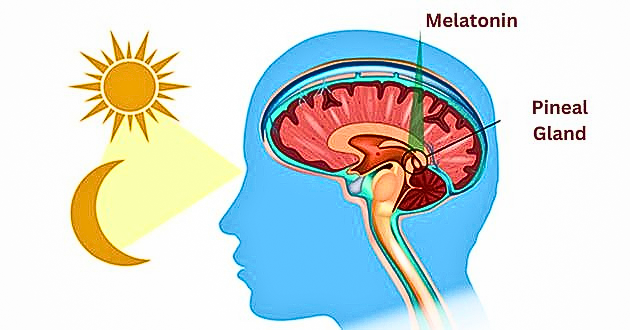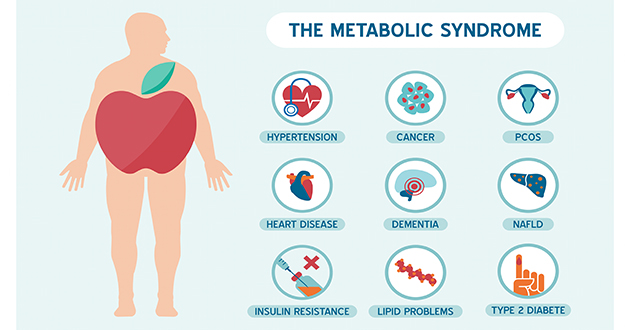Melatonin is effective for insomnia, but did you know it has other health benefits besides sleep, such as boosting the immune system?
Melatonin is effective for insomnia, but did you know it has other health benefits besides sleep, such as boosting the immune system?
Melatonin has long been known as a hormone that helps us sleep, but recently, the non-sleep functions of melatonin have been explored.
Types of melatonin
Melatonin is sold as a dietary supplement in the United States but is treated as a drug in the rest of the world. Melatonin comes from various sources, including synthetic, extracted from animal brains, and extracted and fermented from plants.
There are also two types of melatonin: Immediate -release and Sustained -release. Sustained-release melatonin is less likely to leave you sleepy the following day than immediate-release melatonin, and both have the same effect on insomnia.
How Melatonin gets synthesized in the body
Melatonin is synthesized in the human body in a part of the brain called the pineal gland. Melatonin is produced in response to darkness. The production of melatonin depends on the amount of light that hits the retina of the eye. This is affected by sunlight and light from electric bulbs, televisions, computers, and other sources.
Until the teenage years, the pineal gland produces about 0.5 to 0.8 mg of melatonin daily. After that, 0.3 mg of melatonin is produced per day.
Although not widely known, melatonin is also produced in the gastrointestinal tract, and much more significant amounts of melatonin are made in the gastrointestinal tract than in the brain. Melatonin in the GI tract is vital for normal peristalsis and valve function.
Causes of decrease in melatonin production
Melatonin production declines with poor diet, irregular lifestyle, and age (especially over 50). In addition, people who frequently travel abroad or work shifts tend to decrease melatonin production.

Studies have shown that cancer, gastrointestinal disorders, cardiovascular disease, and pregnancy disorders are more common in shift workers, especially those who work night shifts. Therefore, many studies, scientific opinions, and guidelines recommend that shift and night shift workers take melatonin to improve their sleep disorders and health.
Medications that lower melatonin production: antidepressants, anti-inflammatory drugs, beta-blockers, calcium channel blockers, caffeine, tobacco, alcohol.
Benefits of melatonin other than sleep
In addition to aiding sleep, melatonin also acts as an antioxidant to reduce free radicals. What makes melatonin unique is that antioxidants such as vitamin C from food cannot cross the blood-brain barrier, but melatonin can cross this barrier to protect the brain from free radicals.

Because of this action, studies have shown that melatonin may help prevent brain atrophy, dementia, and Alzheimer's disease.
Melatonin Dosage
Excess melatonin can cause lethargy and drowsiness the next day. However, this lethargy and drowsiness will gradually disappear with the continued use of melatonin, so those who wish to take high doses of melatonin should increase their intake gradually.
Melatonin induces sleep and lowers body temperature, making it easier to fall asleep. Remember, if you feel too cold, it is a sign that you have too much melatonin. A slightly lower body temperature and ease of falling asleep is the appropriate melatonin dosage for each individual.
Melatonin is quickly broken down in the body, so the dosage varies from person to person. Because it is also broken down quickly, a certain amount of melatonin must be taken every night for insomnia.

Benzodiazepines deplete melatonin, sleeping pills, and psychiatric drugs that act on a neurotransmitter called GABA. Try melatonin if you have used these drugs for a long time and cannot sleep naturally.
Furthermore, studies of melatonin for cancer have used doses as high as 20 mg and found positive benefits.
Research findings on melatonin
The latest genetic studies show differences in melatonin metabolism between patients with attention deficit disorder and healthy individuals.
A study of oxidative stress markers in athletes showed that stress markers in the melatonin-treated group had lower oxidative stress markers and lowered inflammation and injury than the group that did not take melatonin.

In patients with metabolic syndrome, melatonin was given to a group of patients whose cholesterol and blood pressure had not improved after three months of lifestyle and dietary modification alone, and improvements were seen in bad cholesterol and blood pressure within two months.
Melatonin administration to age-related macular degeneration prevents and reduces the progression of the disease.
Studies on the effects of melatonin on dementia have shown improved cognition, memory, and sleep duration. 
Melatonin prevents the aggregation of beta-amyloid, which causes Alzheimer's disease, and improvements were noted in the prevention of Alzheimer's disease and cognitive performance.
Autistic patients were found to have low melatonin levels due to a gene, and melatonin administration improved sleep and daytime behavior.
Neurodegenerative disorders are thought to be a result of mitochondrial dysfunction. Mitochondria manufacture energy within cells and are known to be easily damaged by free radicals. Melatonin is selectively absorbed by mitochondria and protects mitochondria from free radicals.
Melatonin boosts the immune system. In addition, high melatonin concentrations have been shown to stop the growth of metastatic cancer cells and improve the quality of life of cancer patients.
Melatonin has been shown to improve the function of the valve between the esophagus and stomach and to improve gastric acid reflux disease.
Reference:
Curr Neuropharmacol. 2017 Oct; 15(7): 1010–1031. Molecules. 2021 May; 26(9): 2506. J Pineal Res Actions. 2011 Nov;51(4):394-9. Int. J. Mol. Sci.2015, 16(8), 16981-17004; Diabetol Metab Syndr. 2014; 6: 124. Ann N Y Acad Sci. 2005 Dec;1057:384-92. Curr Neuropharmacol. 2010 Sep; 8(3): 218–227. Curr Clin Pharmacol. 2014;9(4):326-34. J Pharmacol Exp Ther. 2012 Sep; 342(3): 619–630. Arch Toxicol. 2015 Jun;89(6):923-39. Immun Ageing. 2005; 2: 17. Medicine (Baltimore). 2019 Jan; 98(4): e14241.
* These statements have not been evaluated by the Food and Drug Administration. This product is not intended to diagnose, treat, cure, or prevent any disease.

 US Dollar
US Dollar

